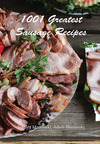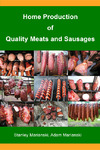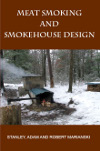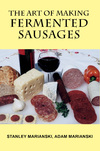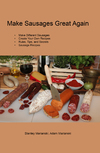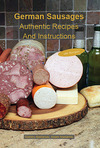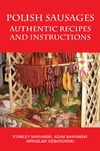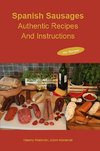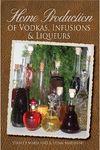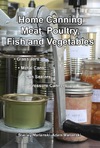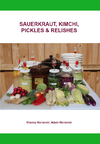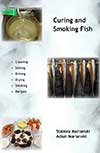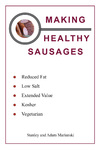Meats and Sausages
Fresh Fruit Infusions
The process of making infusions relies on maceration; the wine making process where the phenolic materials of the fruit (tannins, coloring agents and flavor compounds) are leached from the fruit skins, seeds and stems into the must. All those aromatic oils, color forming substances, minerals, sugars, and proteins are locked inside of the cell and must be extracted. The majority of them will be released in the form of a juice, however, substances responsible for the color are contained in the skin.
The first step in macerating fruit is cutting, pressing or puncturing fruit to increase the surface area. You could extract fruit with a juice extractor, but its clarity will not be as pure as running it through a press. Try to avoid pulverizing pits, seeds or even skins as they contain substances that impart a bitter taste to the product. They also contain pectins which can make the solution cloudy. However, a certain percentage of pits, for example sour cherries or plums are often added as they bring a special and desired flavor. It is difficult to determine the exact amount of infusion that will be obtained as this depends on the characteristics of the fruit. The same variety of fruit grown in different climate zones will contain a different amount of sugar and juice. Knowing how much juice will be released by a particular fruit will give us a general idea to the alcoholic strength of the infusion. Generally, it may be expected that around 60-80% of juice may be obtained from fresh fruit. The following table can be used as a point of reference as it reflects the methods used by commercial producers.
Making infusions from 1 kg of fresh fruit.
First Infusion
| Material | Alcohol (liter) | Alcohol (%) | Time |
|---|---|---|---|
| Apple | 800 | 70 | 3 weeks |
| Apricot | 800 | 70 | 3 weeks |
| Blackthorn | 1000 | 70 | 3 weeks |
| Black berries | 800 | 85* | 3 weeks |
| Black currants | 1000 | 75 | 4 weeks |
| Blue berries | 800 | 80* | 3 weeks |
| Plums, damson | 900 | 80* | 3 weeks |
| Raspberries | 800 | 80* | 3 weeks |
| Rowan | 1000 | 70 | 3 weeks |
| Sour cherries | 800 | 85* | 3 weeks |
| Strawberries | 1000 | 75 | 3 weeks |
| Walnuts, green | 900 | 60 | 3 weeks |
*If 95% alcohol is not available, use 75% Everclear® or equivalent. 1 liter = 1000 ml |
|||
Second Infusion
| Material | Alcohol (liter) | Alcohol (%) | Time |
|---|---|---|---|
| Apple | 600 | 40 | 3 weeks |
| Apricot | 600 | 40 | 3 weeks |
| Blackthorn | 800 | 40 | 3 weeks |
| Black berries | 700 | 40 | 3 weeks |
| Black currants | 650 | 40 | 3 weeks |
| Blue berries | 700 | 40 | 3 weeks |
| Plums, damson | 600 | 40 | 3 weeks |
| Raspberries | 700 | 40 | 3 weeks |
| Rowan | 800 | 40 | 3 weeks |
| Sour cherries | 700 | 40 | 3 weeks |
| Strawberries | 800 | 40 | 3 weeks |
| Walnuts, green | 600 | 40 | 3 weeks |
Citrus Skins
Lemon and orange skins contain a lot of aromatic substances. Orange oil is extracted from the orange peel by cold-pressing and yields 0.3-0.5 %. Fresh citrus skins are macerated with 75% alcohol for 3-4 days only, as longer maceration introduces a bitter flavor. Strain and filter.
For more information, visit extracts and citrus vodka.

